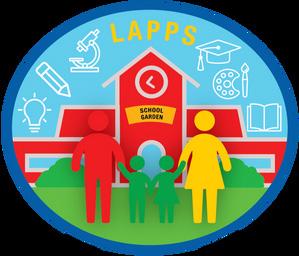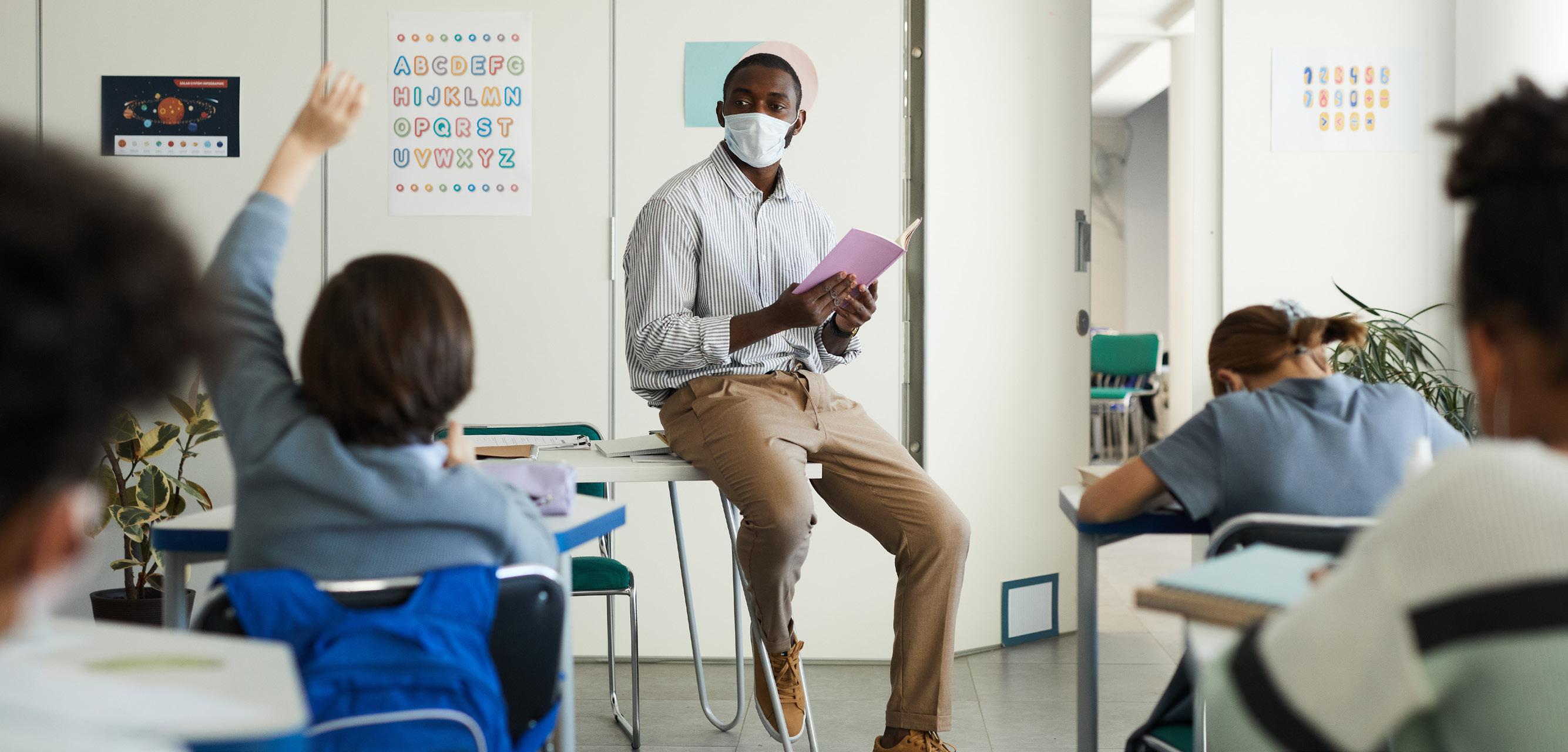
4 minute read
The For Us, By Us Atlanta Fund
raised to support families in Atlanta Public Schools
201
$100k grants awarded through the FUBU Atlanta Fund
Even before the pandemic, we knew multiple factors impact a child’s learning experience. That’s why we were alarmed as COVID-19 sickness and deaths, historical rates of rapid unemployment, lingering eviction moratoriums and the digital divide – among other disruptions – interrupted families’ daily lives and students’ learning at the start of the pandemic. There was clearly work to do outside of supporting children’s education.
Parents’ and caregivers’ hardship stories dominated our check-ins with grantees, teachers and school and district leaders. We saw Atlanta Public Schools implement a food distribution program for students and families in the city while also working to distribute Chromebooks and wi-fi hotspots for remote learning. We realized that the basics were most pressing as the school year rolled into summer. How would Chromebooks and wi-fi hotspots power on if the electricity was off in a child’s home? What dedicated workspace would a child have if they experienced an eviction?
We shared these experiences with other philanthropic organizations and raised $100,000 to support families in Atlanta Public Schools. We granted the funds to two local parent groups, Atlanta Thrive and the Latino Association for Parents in Public Schools (LAPPS). They created the For Us, By Us (FUBU) Atlanta Fund out of their immediate recognition that the rapid spread of COVID-19 severely – and disproportionately – impacted Black and Latino communities.
Atlanta Thrive is a parent-driven organization that empowers families to disrupt inequities in the education system. LAPPS is a support network to empower Latino parent voices within schools. Together, they led the efforts to distribute critical financial assistance to families in Atlanta Public Schools struggling with housing, food insecurity and other basic needs, including utility bills.

The FUBU Atlanta Fund awarded 201 grants – up to $599 each – to families in 15 zip codes across the city. These families included 474 children who attended 61 different schools.
The parent-led organizations formed valuable relationships while conducting their outreach and fund promotion. They drew attention to the needs of parents and caregivers during this time while spreading the word about the small-dollar grants from the FUBU Atlanta Fund. In addition, they worked with the Atlanta Public Schools Office of Partnerships and Development to connect with school social workers and families experiencing the greatest reported needs and the Atlanta Solicitor’s Office to reach families via food distribution sites. They also spread the word through media outlets like the Rashad Richey Morning Show on WAOK, Rose Scott’s Show on WABE and the Atlanta JournalConstitution.
The Innovation Fund: Pandemic Education and Restart

raised to develop the redefinED atlanta Innovation Fund: Pandemic Education & Restart
$15k
$170k grants available to Atlanta Public Schools and non-profit organizations
As the pandemic exacerbated disparities, we doubled down on our belief that the people most impacted by inequities should lead the work. To fuel the development of such plans from school personnel and community-based organizations, we developed the Innovation Fund: Pandemic Education and Restart, with $170,000 thanks to the support of partners such as the Rotary Club of Atlanta.
Grants of up to $15,000 were available to Atlanta Public Schools and non-profit organizations serving students and families in Atlanta. Individuals and unincorporated groups interested in the fund could also apply for the funding in partnership with public schools in Atlanta. Proposals were required to align with one of Transcend Education’s 10 Leaps for Equitable, 21st-Century Learning to meet the defined parameters of being equitable, achievable, systemic and scalable.
The fund, which launched October 2020, awarded 24 grants and was depleted by January 2021. Upon review of the proposals, we saw strong alignment with the recommendations outlined in the Quantifying the Impact of COVID-19 School Closures on Metro Atlanta community power building theory of change sustaining factors advancing our core work pipeline of advocates community sustainingf actors active civic community strong leaders and elected intersectional coalitions equitable and racially just actions and policies advance power & influence citywide messaging sustaining factors
Student Proficiency report. Grantees’ efforts trended towards five support themes: science, technology, engineering, and math (STEM); social-emotional learning; parent and community-led initiatives; racial and social justice; and talent support and development.

Positive change and leadership can be lasting over time when all sustaining factors are in place and active.
The Community Power Building Theory of Change requires ongoing relationship building as the driving force to support and ignite three sustaining factors: narratives, coalitions, and a pipeline of advocates. These sustaining factors provide the conditions for communities to grow power and influence by increasing an informed K-12 public education voter base to hold elected officials accountable for advancing equitable policies.
To secure racially just and equitable policies in K-12 public education, redefinED atlanta believes: redefinED atlanta brings together diverse groups of stakeholders to serve, anticipate and adjust to the rapidly evolving education landscape.
• The most extreme and pressing inequities deserve the boldest and most urgent actions.
• Collaboration with the community is critical and funders should allocate resources to people most impacted by inequity to drive change.
• Grantmaking efforts are most effective when paired with community power building.
To drive the conditions that ensure all students have opportunities, well-being and self-determination, redefinED atlanta partners with communities in Atlanta to ignite three sustaining factors.
We aim to grow an informed pipeline of advocates, drive citywide awareness about opportunities to improve K-12 public education and activate intersectional coalitions working to advance equity through collective actions.
We believe a civically engaged community with strong leaders holding elected officials accountable to the needs of every student in every community will secure equity in education.
Engagement and Advocacy
We are committed to listening, learning and working alongside families, community members, school-level talent and district leaders to advocate for equity. Building relationships is foundational to our engagement work and is the crank that propels the sustaining factors to create the conditions for every student to receive a great K-12 public education. With an informed and active pipeline of K-12 public education advocates working together to amplify the unique needs of children and families, we project that civic engagement in support of great schools will grow. Engaging with residents in neighborhoods across the city helps us identify families’ needs and desires for their children’s education and informs our advocacy.




